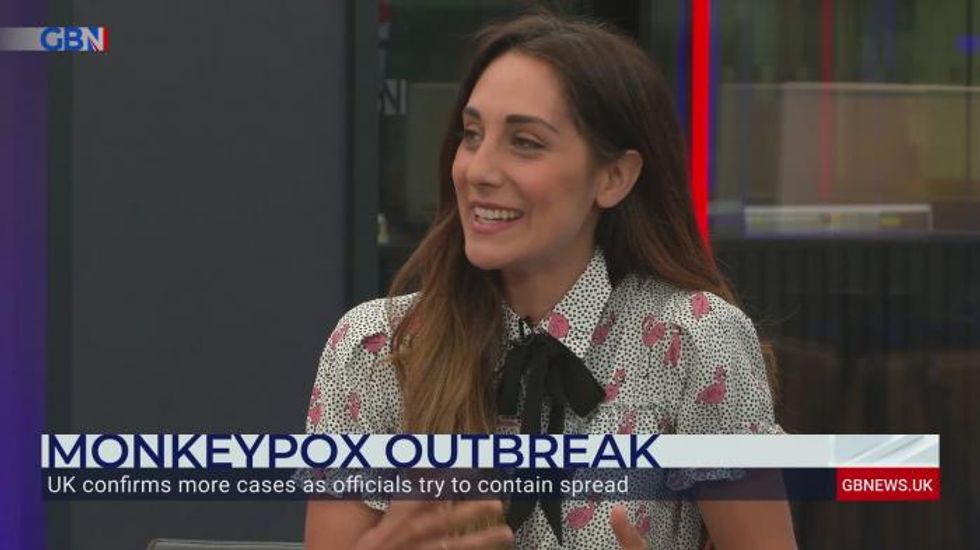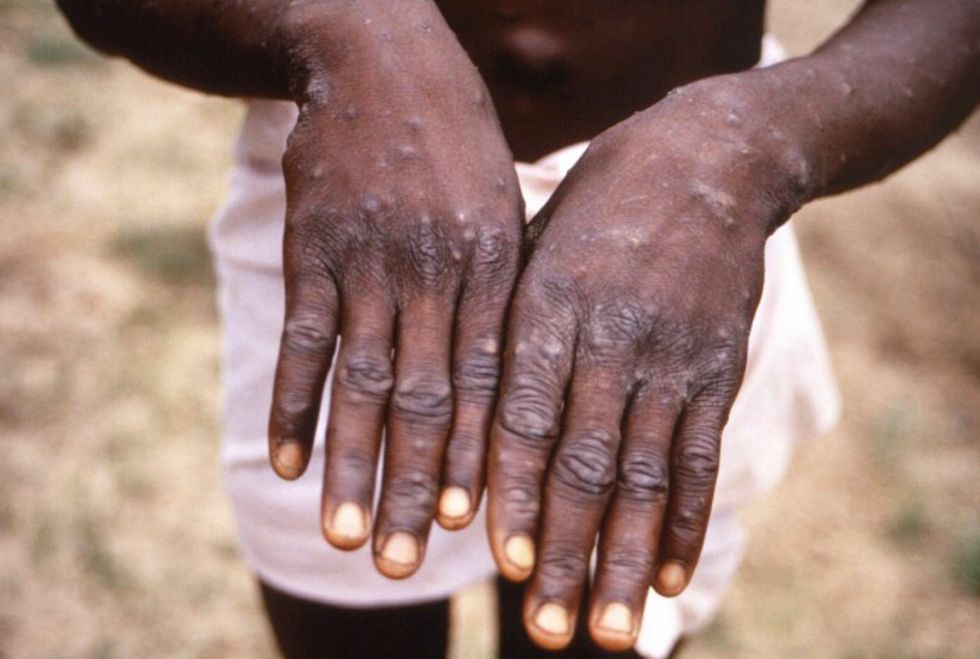Don't Miss
Most Read
Trending on GB News
The individual is receiving care and treatment appropriate to their condition and contact tracing is underway.
Monkeypox is a viral infection usually found in West and Central Africa. The West African strain that has been recently detected in the UK is generally a mild self-limiting illness, spread by very close contact with someone already infected and with symptoms of monkeypox. Most people recover within a few weeks.
Public Health Scotland (PHS) is working with the UK Health Security Agency (UKHSA), Public Health Wales and Northern Ireland HSC Health Protection Agency to monitor and respond to potential and confirmed cases of monkeypox in the UK.
As of Friday 20 May, the UKHSA has identified 20 cases in England but more are expected.
Monkeypox rashes
CDC/BRIAN W.J. MAHYClick to add image-byline
Dr Nick Phin, Director of Public Health Science and Medical Director, PHS explains:
“Public Health Scotland is aware of an individual in Scotland who is confirmed to have monkeypox. The affected individual is being managed and treated in line with nationally agreed protocols and guidance.
“We have well established and robust infection control procedures for dealing with such cases of infectious disease and these will be strictly followed.
“We are working with NHS Boards and wider partners in Scotland and the UK to investigate the source of this infection. Close contacts of the case are being identified and provided with health information and advice. This may include the offer of vaccination.
“The overall risk to the general public is low.
“Anyone with an unusual blister-like rash or small number of blister-like sores on any part of their body, including their genital area, should avoid close contact with others and seek medical advice if they have any concerns.”
Dr Sara Kayat told Breakfast with Eamonn and Isabel that the virus is "endemic in Western and Central Africa."
"It was originally found in 1958 in monkeys, hence the name, first seen in a human in 1970."
She continued: "It causes, in most people, pretty mild symptoms initially just headaches fevers, chills, body aches.
Test tubes labelled %22Monkeypox virus positive%22 are seen in this illustration taken May 22, 2022. REUTERS/Dado Ruvic/Illustration
DADO RUVIC
"And then you can get this rash, which often starts on the face and then can spread to the rest of the body including hands and genitals."
Asked why the rash is often found in the genital area, Dr Kayat told GB News: "It can spread anywhere", but also noted that the presence of the rash on the genital area makes "more likely to spread through sexual contact."
Dr Kayat also confirmed that although the virus causes mild symptoms for most people, those that are more vulnerable could be at risk of significant illness or death.
"It's particularly bad in those that are immunocompromised, those that are under the age of 12, vulnerable people, and in those people it can be serious and even fatal", the GP said.
Asked whether it's likely to become a great crisis, Dr Kayat noted the pre-existing vaccine that medical professionals could use to help control the spread of the virus.
"It's very closely related to smallpox and we know that the smallpox vaccine is about 85 percent effective... we have that vaccine and we can give it if needed."
Isabel Webster asked the doctor why the virus is spreading in Europe, Dr Kayat said: "Usually there's always a connection, so a link to someone who has travelled to West or Central Africa.
"At the most it's now spreading within the community, so we're not noticing that specific link anymore."
The rash changes and goes through different stages, before finally forming a scab, which typically falls off over the course of a couple of weeks. Individuals are infectious from the point symptoms start until all the scabs fall off. During this time close contact with others must be avoided.












